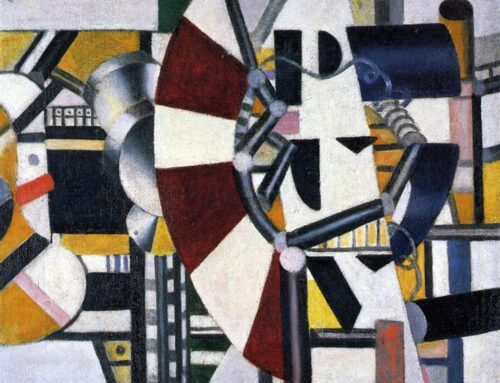Faith in machinery and the question of culture: a Victorian appraisal:
Faith in machinery is, I said, our besetting danger; often in machinery most absurdly disproportioned to the end which this machinery, if it is to do any good at all, is to serve; but always in machinery, as if it had a value in and for itself.What is freedom but machinery? what is population but machinery? what is coal but machinery? what are railroads but machinery? what is wealth but machinery? what are religious organisations but machinery? Now almost every voice in England is accustomed to speak of these things as if they were precious ends in themselves, and therefore had some of the characters of perfection indisputably joined to them…. But the aspirations of culture, which is the study of perfection, are not satisfied, unless what men say, when they may say what they like, is worth saying, — has good in it, and more good than bad….And in the same way with respect to railroads and coal. Every one must have observed the strange language current during the late discussions as to the possible failure of our supplies of coal. Our coal, thousands of people were saying, is the real basis of our national greatness; if our coal runs short, there is an end of the greatness of England. But what is greatness? — culture makes us ask. Greatness is a spiritual condition worthy to excite love, interest, and admiration; and the outward proof of possessing greatness is that we excite love, interest, and admiration. If England were swallowed up by the sea to-morrow, which of the two, a hundred years hence, would most excite the love, interest, and admiration of mankind, — would most, therefore, show the evidences of having possessed greatness, — the England of the last twenty years, or the England of Elizabeth, of a time of splendid spiritual effort, but when our coal, and our industrial operations depending on coal, were very little developed?…
Wealth, again, that end to which our prodigious works for material advantage are directed, — the commonest of commonplaces tells us how men are always apt to regard wealth as a precious end in itself; and certainly they have never been so apt thus to regard it as they are in England at the present time. Never did people believe anything more firmly, than nine Englishmen out of ten at the present day believe that our greatness and welfare are proved by our being so very rich. Now, the use of culture is that it helps us, by means of its spiritual standard of perfection, to regard wealth as but machinery, and not only to say as a matter of words that we regard wealth as but machinery, but really to perceive and feel that it is so.If it were not for this purging effect wrought upon our minds by culture, the whole world, the future as well as the present, would inevitably belong to the Philistines. The people who believe most that our greatness and welfare are proved by our being very rich, and who most give their lives and thoughts to becoming rich, are just the very people whom we call the Philistines. Culture says: “Consider these people, then, their way of life, their habits, their manners, the very tones of their voice; look at them attentively; observe the literature they read, the things which give them pleasure, the words which come forth out of their mouths, the thoughts which make the furniture of their minds; would any amount of wealth be worth having with the condition that one was to become just like these people by having it?” And thus culture begets a dissatisfaction which is of the highest possible value in stemming the common tide of men’s thoughts in a wealthy and industrial community, and which saves the future, as one may hope, from being vulgarised, even if it cannot save the present.
Matthew Arnold, “Culture and Its Enemies” (1867)






Leave A Comment